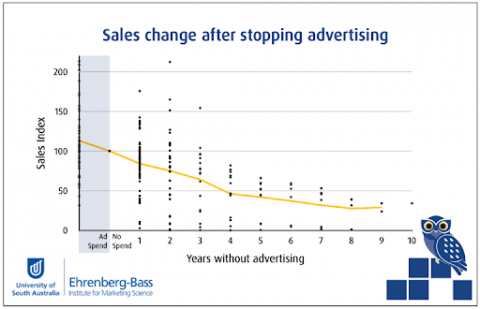After a brief hiatus – and lots of political and economic events later – this morning, we finally hosted our first post-pandemic Breakfast Briefing back in Hallam HQ.
Our CEO, Julio Taylor, and Advertising and Consulting Director, Ben Wood, took to the floor in this first session, looking at the trends dominating this Q4 and beyond. A huge thank you to those who attended today, supporting us in transitioning back to hosting regular in-person events.
Our Breakfast Briefings take place every month with an emphasis on different topics each time that relate to both the current marketing climate and the wider macro climate.
In this blog, we’ve summarised the main trends from today’s briefing that you need to consider implementing into your marketing strategy. 
Privacy and attribution
Get ahead
Most marketers are aware of the looming cookieless future we’re facing and the constant postponing of its introduction by Google (yep, we’re now looking at 2024…) But while this may seem like a ‘tomorrow problem’, the only way to succeed in a cookieless future is to experiment with what works now, and this is something that takes time – and a lot of it.
However, there are some early viable alternatives to cookies in the pipeline, such as Unified ID 2.0: these are the sorts of technologies you want to be experimenting with to see which can provide the closest data to cookies. The only way you’re going to find a cure is by looking for it; as Julio warned, if you sit and wait for a perfect system to come along, you’ll already be left behind.
Social media
Ben also explained that social media also requires experimentation and lots of time to perfect. You need to figure out what is reaching your potential customers and keep creating a particular type of content on a particular type of platform. Simply put, find something that works and run with it.
Advertisers are struggling to see a return on investment on social media networks and consumer confidence is declining as a result. The inability to accurately track growth on social media is beginning to make people believe it doesn’t work; the reality is that they do, it’s just harder to prove.
Smarter use of data and modelling for social media can give you a competitive edge in this age of privacy; although its return on investment is not as obvious as for paid media for example, the growth of your brand will take a huge hit if you dismiss its value. It’s been proven that a large social media presence increases your share of search, which positively correlates with your market share and brand growth:
 Power to the publishers
Power to the publishers
Historically, many publishers have relied on third-party advertising to generate income but the power is starting to shift. As a result of privacy restrictions (including the cookieless future that’s often talked about) it’s becoming a lot more difficult to target highly customised users – it’s often very expensive, requires consent and needs to be highly specific to a certain demographic who are interested in things you’re talking about. However, as publishers have the ability to see data about who is reading what – which is where targeting happens – the power imbalance is moving away from ad exchangers.
This contextual layer of targeting puts power in publishers’ hands, as publishers have to post the best content so that people will go to their website. For 2023 and beyond, expect the power to shift to publishers, as quality of content – and its importance as a means of consumer attraction – will rise.
As the power shifts from ad exchangers to publishers, data also switches from third-party to first party-data. If you’re a publisher (and consider this in the broadest terms – if your site publishes content, you’re a publisher), implement ways to extract this information, whether it be via newsletter sign ups, content download forms or logging into your website.
Automation
Much of Paid Media has now become automated, with many Paid Media specialists’ roles evolving completely over the last decade or so.
If it’s not already on your radar, then Performance Max (or PMax) is something worth knowing about. With PMax, ad assets – rather than campaign-specific ads – are fully written out by advertisers with few keyword controls. Instead of the current system, bids are automated and determined by advertiser goals rather than a restrictive max CPC.
Automation in this space may seem daunting, but it shouldn’t be taken as a bad thing – as Ben reminded us, technology evolves, so we have to move with it and can move our focus to other, non-automated areas instead.
Recession
Consumer confidence is at its lowest of all time: Europe has a huge gas supply issue which is sending energy costs spiralling, British politics is ever evolving and the latest government policies include further changes to tax and National Insurance.
In times such as this, marketing is often the first thing people think needs to be culled. Marketing theory warns us time and time again that treating marketing activity as decorative or a ‘nice to have’ is a huge mistake to make, as the reality is that it’s absolutely fundamental to the success of your business – especially in a downturn. So, what can marketers do? The most important thing is to prove value.
The key here is to play the long game. There’s evidence that businesses who invest in share of voice during a recession eventually grow once the recession is over. The important thing to remember is that the recession won’t last forever, but the consequences of your marketing investments will have an impact for much longer.

Reiterating this, it’s shown that even after pausing ads for just a year, sales continue to decrease for a long-term period afterwards. It’s something that can’t be turned off and on.

Something you should be doing is measuring your share of search, which is the percentage of the search market you have compared to your competitors; you should try to maintain this over the course of the recession with your ads and marketing, otherwise you are likely to face long-term sales decline.
November’s Breakfast Briefing
Fancy joining us next time? On Wednesday 23rd November, our Head of Paid Media, Jack Brown, will be building upon the trends covered in today’s session, sharing what your Paid Media strategy needs for 2023.



